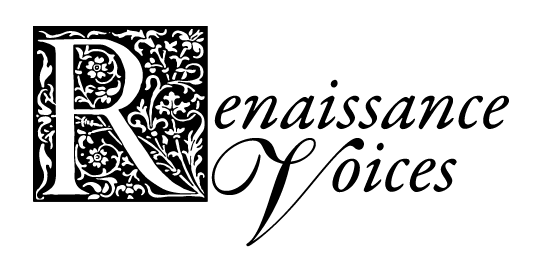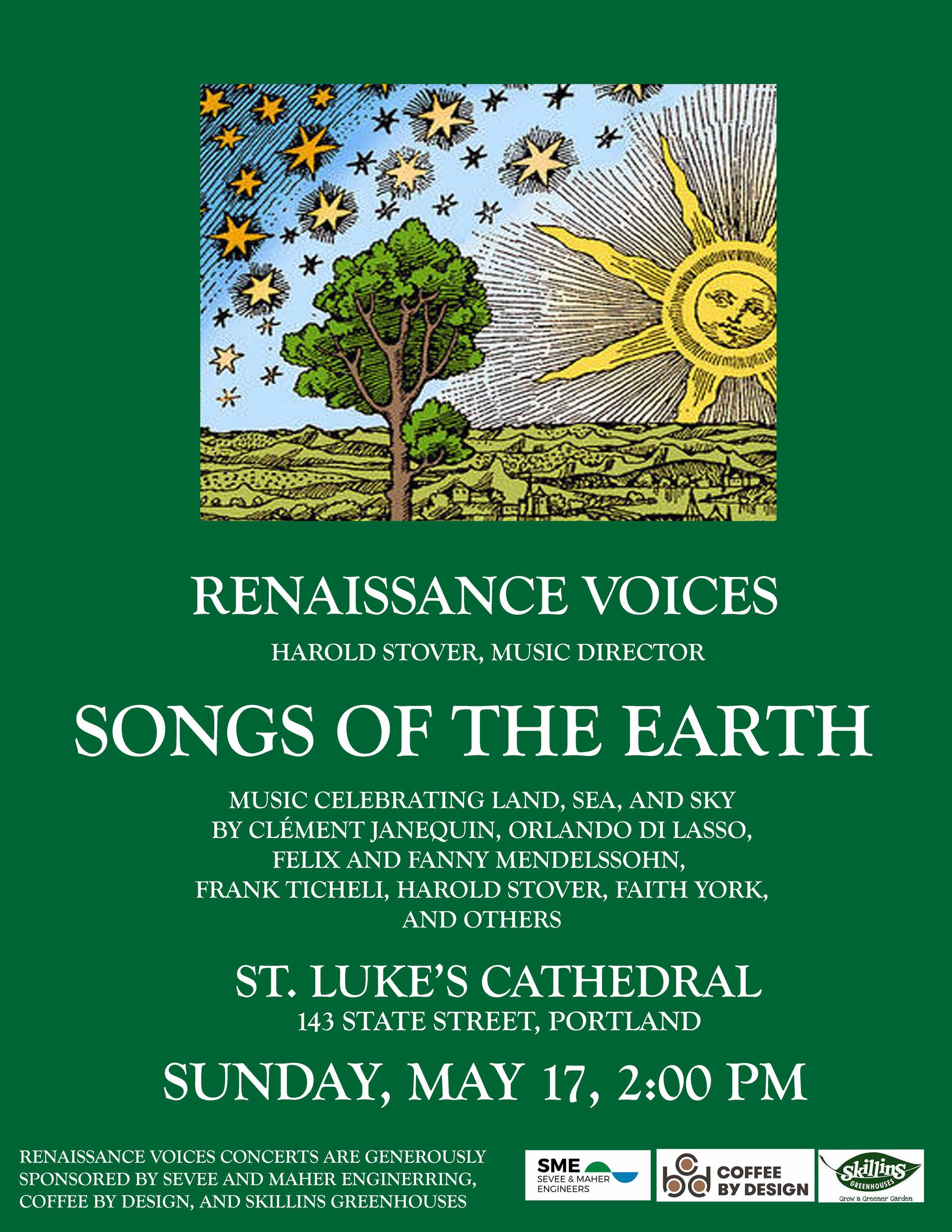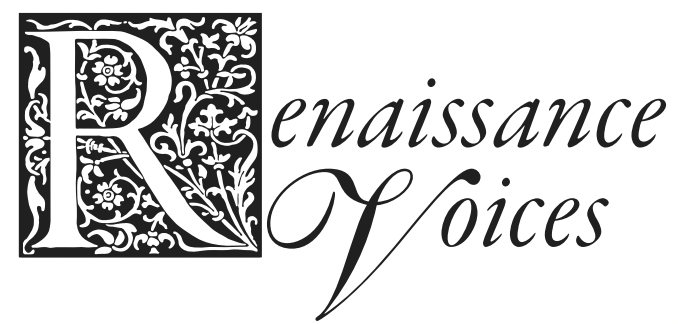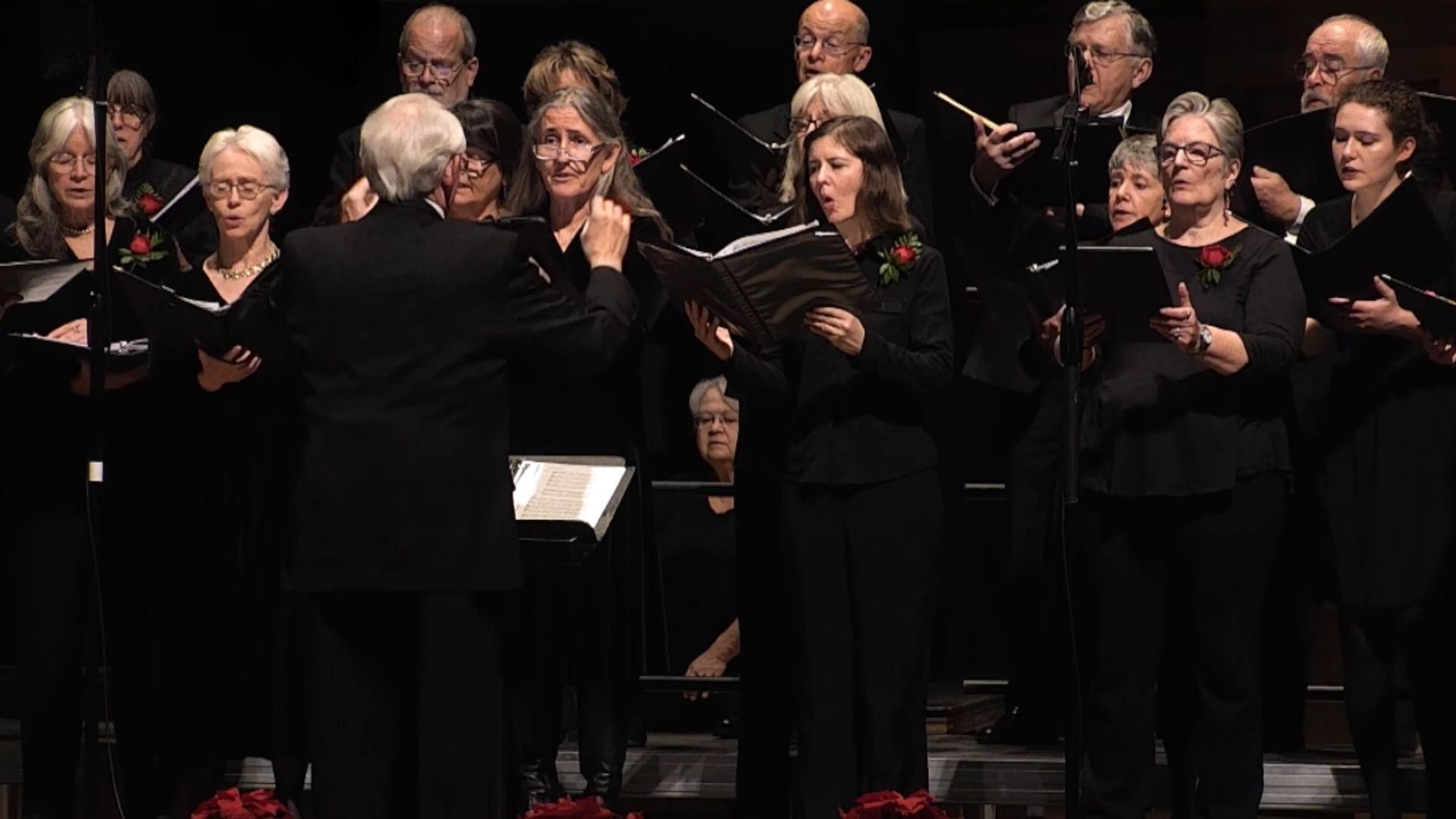
About Renaissance Voices
Founded in 1995, Renaissance Voices is an auditioned, Portland-based, 26-voice, a cappella ensemble, performing music and thematically-related readings from the Middle Ages through the present day, including works by many women composers, and by contemporary Maine-based composers.
We are so very grateful to our 31st Anniversary Season Sponsors:
Coffee By Design
Skillins Greenhouses
Sevee & Maher Engineers
Recordings & Archives
As Renaissance Voices completes its 30th anniversary season, listen to selections of Renaissance Performances, as selected for Music Director Harold Stover’s “Director’s Cut.”
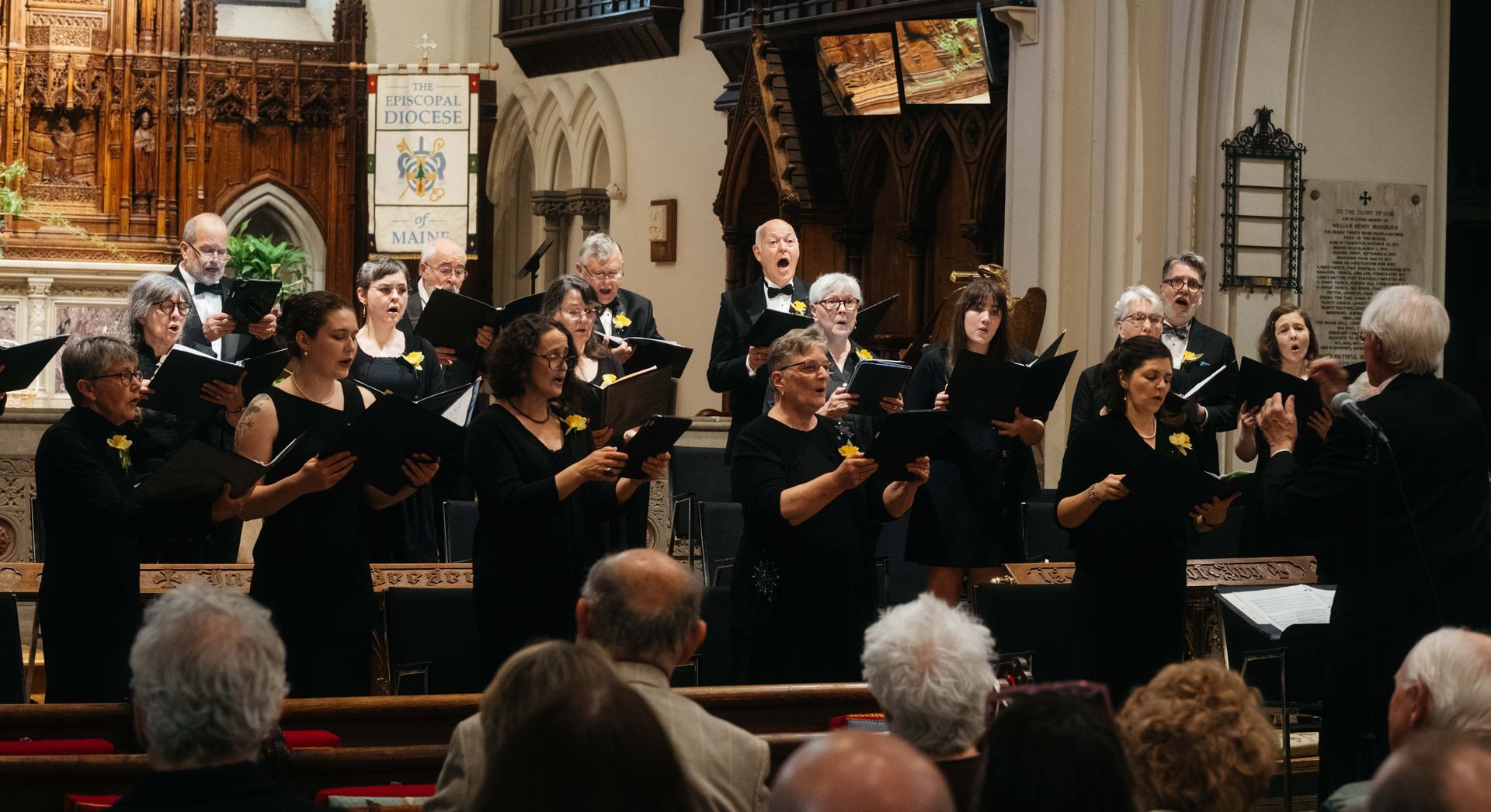
Support Renaissance Voices
Our mission is to bring the salutary power of
a cappella
music to audiences young and old. With your support, we will have the tools to broaden and strengthen our ability to communicate effectively with current concert-goers about our mission and programming, welcome in new audiences to our concerts, and offer free of charge, streaming selections of our performances to people who cannot attend audiences in person.
FAQs & Unexpected Insights
Where and when does the Renaissance Voices chorus perform?
Our primary concerts are held at the Cathedral Church of St. Luke, 143 State Street Portland, Maine. The Gothic Revival style is ideal aesthetically and acoustically for a cappella performance. Designed by New York architect Charles Coolidge Haight, the Cathedral held its inaugural services on Christmas Day, 1868. We perform two Christmas concerts and one spring concert annually at St. Luke's.
Renaissance Voices also has an annual, early-summer concert at the Fifth Maine Museum on Peak’s Island in Casco Bay. The Fifth Maine Regiment Memorial Hall was built in 1888 by the veterans of the American Civil War’s Fifth Maine Volunteer Regiment to honor fallen comrades and to serve as a reunion hall for veterans and their families. The museum offers sweeping views of Casco Bay, a breathtaking spot to perform.
How long has Renaissance Voices been around?
Renaissance Voices first performed in the spring of 1995. The 2024-2025 season, therefore, is our 30th Anniversary, a milestone we will be celebrating with our regular performances, as well as “pop-up” concerts at the Portland Conservatory of Music, and other greater Portland locations.
What should I expect at a Renaissance Voices concert?
When Renaissance Voices was founded in 1995, emphasis was placed on a cappella performance of largely Mediaeval and Renaissance music. Since 2001, when Harold Stover became our Music Director, our programs always offer a combination of rare, unfamiliar works from the Medieval, Renaissance, and Baroque periods, interspersed with more familiar works from the the 19th century, the 20th century Great American SongBook, modern-day rock musicians, as well as premières of original contemporary works by American and international composers.
Renaissance Voices concerts are structured around musical performances interspersed with poetry and literary readings designed to add context and perspective to the works, and to deepen both the audience and singers’ connections with the music. The tradition of no applause between pieces adds to the exquisite immersive experience of being “unplugged” and removed from the hustle and bustle of modern life.
What has Renaissance music ever done for us?
This is a great Monty Pythonesque question! The Renaissance emerged from the so-called Dark Ages, a period of famine, war, loss of faith, and the emergence of secularism, self reliance, and individualism. Sound familiar? How did the Renaissance change how music was performed, by and for whom? In the Middle Ages, monasteries and the Church were the primary centers for musical performance, with monks singing devotional, single-line melodic songs and chants. The Renaissance ushered in the growth of secular music, polyphony – multiple melodic lines simultaneously, the study of what came to be known as Music Theory, brand-new forms of instrumentation. Oh, and the development of Improvisation, which we normally associate with Jazz, emerged during the Renaissance. What’s more, original compositions with secular themes were created by named vs. anonymous composers, and the public lapped them up; much as a jazz group might do today, Renaissance musicians improvised riffs to embellish tunes familiar to audiences.
What are examples of ‘modern’ music that is influenced by early music?
Listen to Lady Gaga’s “Bad Romance,” or Sting’s “Songs From The Labyrinth” which have clear mediaeval influences. The borrowing goes the other way, too. Check out “Bardcore,” a microgenre, founded by Cornelius Link, that mediaevalizes pop songs. Founded in 2017, Bandcore really took off in 2020 when the world went into lockdown, and sought out music as a source of comfort!
Wow! They really can sing all this stuff!
So said an audience member at one of Renaissance Voices most recent concerts: Love Songs Old and New. The program included songs from English Renaissance composer, John Dowland, songs of love and loss from 16th century Italian composer, Maddalena Casulana, the first woman composer to have a complete book of her music published in the history of Western music, and ended with works by Ives, and Paul McCartney. Richard Rodgers showtunes, Jonny Priano’s reworking of “Blue Moon,” English Renaissance love songs filled with flirtatious nymphs and shepherds. We sing the lot, and to enthusiastic critical acclaim. We even take on thrilling spoken rather than sung pieces, such as Ernst Toch’s “Geographical Fugue,” a work from the 1930s, and translated to English by John Cage and Henry Cowell (Toch fled Germany for the United States in 1935). Multi-syllabic text includes accented place names, such as Trinidad, Honolulu, Mississippi, Titicaca, Canada and Málaga, and once the stream of names is set in fugal form, the rhythms weave together to create a vibrant, fun, and totally-unexpected experience.
Why should I listen to music, really?
A recent Johns Hopkins report: Keep Your Brain Young Through Music (2017) summarized the findings of in-depth research on the benefits of listening to music. Here are their five key points:
● If you want to firm up your body, head to the gym. If you want to exercise your brain, listen to music. It provides a total brain workout.
● Music is structural, mathematical and architectural. It’s based on relationships between one note and the next. You may not be aware of it, but your brain has to do a lot of computing to make sense of it.
● Listening to music can reduce anxiety, blood pressure, and pain as well as improve sleep quality, mood, mental alertness, and memory.
● According to an article published by Harvard Medical School, “listening to and performing music reactivates areas of the brain associated with memory, reasoning, speech, emotion, and reward.” In fact, “music doesn’t just help us to retrieve stored memories, it also helps us lay down new ones.”
● Music creates community connection. The communal act of listening to music with other people generates social connection.
